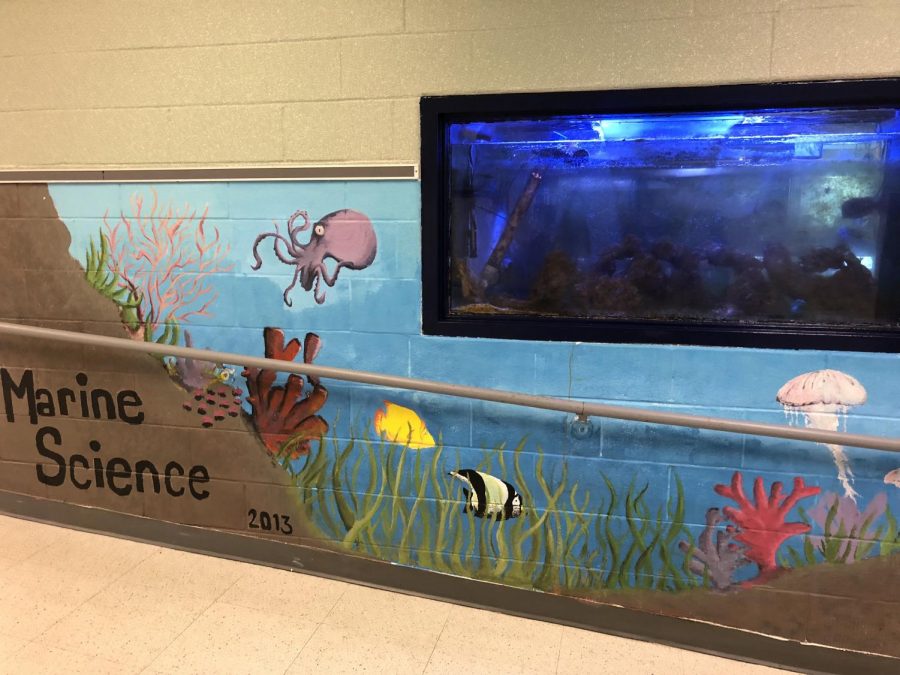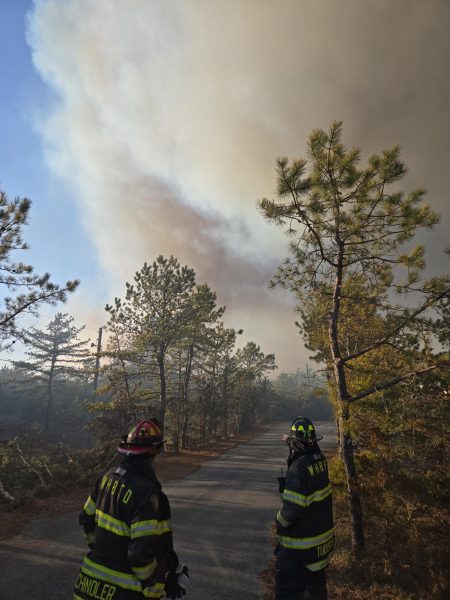Class Spotlight: Marine Science
Have you ever wondered who and what is behind the fluorescent fish tanks you see around school? It’s the Marine Science class, a unique course offered here that focuses on many different aspects of sea-life, and working well together with your peers.
Unquestionably, many students sign up to take this class as it is highly talked about through the school for the exclusive field trips, projects, and experiences that marine science entails. According to Marine Science teacher Mr. Kommer, his most crucial rules are courtesy, consideration, and respect. He recommends that when you show up you have a log book, and “are ready to rock.”
As most people know, keeping up and caring for your own marine organism is one of the main purposes of the class. In order to do this, Mr. Kommer mentioned that the fish are collected on the field trips. “The students do the work, mostly, we net fish from different habitats in the Shinnecock bay.”
Although, this is not all the class requires. Mr. Kommer grades students on projects, written marine assignments, tank projects, and maintenance of the log book. This is definitely not the hardest science course available for juniors to take, but not the easiest by any means either. In Mr. Kommer’s opinion, “Yes, it’s hard in terms of what it asks the students for in terms of respect and dedication, but not intellectually.”
Junior Josh Cunniff tends to feel the same way, in saying that the class is not hard to learn, but does require a lot of extra work. The extra work mentioned includes lots of note taking, and trying to get as many points to boost your average. Showing up to extra help, taking notes for people who have missed class, and even being courteous are ways for students to get checks, and essentially points on their average. Mr. Kommer makes it attainable for student to succeed in his class.
Another junior Abby Kilroy said, “Being on Mr. Kommer’s good side and never missing field trips” is the best way to succeed in this class.
Marine science is clearly very different than your typical science class. After speaking to students, I got the idea that the class has a nice relaxed feel, and also a lot of hands on work. Emily Noonan, another junior said, “You’re always doing something, you’re never bored, and can always expect something new.”
Although this class isn’t a walk in the park, the students agree that the work is definitely worth it. Josh said he chose this class over the numerous others because, “I’m interested in learning about the marine life and how we can save it because in this class we see how we can change and fix the many problems with our oceans today even just by the smallest things.”

Carley, a junior at WHB, has lived in Westhampton her whole life. Her summers consist of relaxing at Rogers Beach and working at Shock Kids and Starr Boggs....







